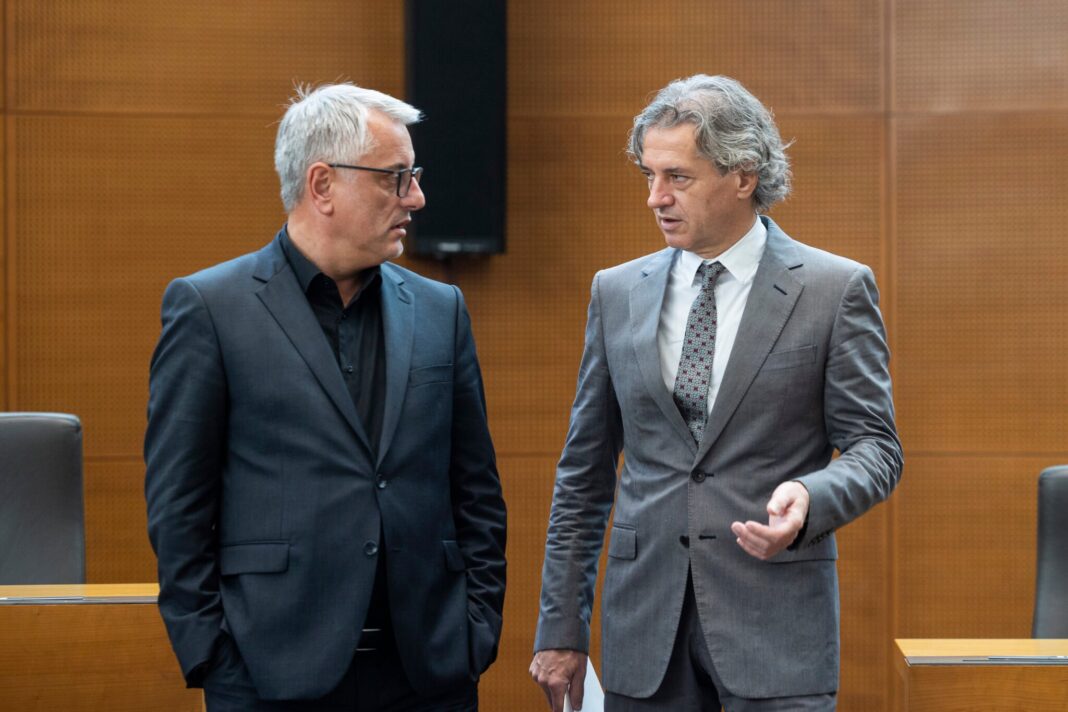By: Sara Kovač / Nova24tv
Not everyone in our country is in the same ecstasy of dancing as the rulers might want to make us believe. Especially not companies that are unhappy about the electricity prices for the coming year. In fact, employers’ organisations addressed Prime Minister Robert Golob with a letter and expressed their disapproval of the model of aid for energy products (especially electricity, but also for natural gas and technological steam) to companies, as derived from the Proposal for the Law on Aid for the Economy to Mitigate the Consequences energy crisis.
As it turns out, this is not the first time that the Chamber of Commerce and Industry of Slovenia, the Slovenian Chamber of Commerce, the Chamber of Crafts and Small Business of Slovenia, the Employers’ Association of Slovenia, and the Association of Employers in Crafts and Small Business of Slovenia have turned to Golob regarding current issues for companies arising from high electricity prices.
They do not support the government’s aid model for energy producers
On the basis of discussions held in recent months and calls from companies, employers’ organisations have formulated a series of proposals for saving and preserving the necessary economic activity, ensuring competitiveness and jobs in the economy, which is also crucial for the future of our country. “As it follows from the discussion at the last meeting of the Economic and Social Council, which took place on December 2nd, 2022, we inform all employer organisations of our common position that we do not support the aid model for energy products (especially electricity and also for natural gas and technological steam) to companies, originated from the presented Bill on aid for the economy to mitigate the consequences of the energy crisis at the ESS meeting (hereinafter: the Bill),” the organisations emphasised in their letter to the Prime Minister.
Higher prices will affect the competitiveness of Slovenian companies
According to them, the regulation on determining the mechanism for setting the price of electricity for large business customers, which was adopted on November 29th and entered into force on November 30th, unfortunately did not achieve its purpose. The prices of electricity that suppliers offer to business customers are still significantly higher than was calculated in the models that formed the basis for the creation of types of assistance. “At the same time, they are also higher than what competitors abroad achieve, or according to which contracts are concluded. According to the regulation, providers do not want to forward offers to those companies that have already completed partial leases or have umbrella contracts,” they added critically.
In the letter, they submitted a proposal to amend the Bill in such a way that small and medium-sized companies in Slovenia will be able to receive assistance in accordance with the toolbox that the European Commission established in early October and where it set a price brake of up to 180 euros/MWh. “For energy-intensive companies, which, due to the high entry criteria, will not be able to benefit from special aid for energy-intensive companies and special aid for energy-intensive companies in special sectors, as listed in the Bill, special aid should be made possible due to reduced economic performance according to Article 67 a of the temporary framework. The government should notify the European Commission of this aid as soon as possible,” they emphasised, adding that due to the expected difficult negotiations with the European Commission, the notification will require the involvement of the highest level of the Slovenian government.
In the very conclusion of the letter, they expressed the expectation that the Prime Minister will carefully examine the coordinated economic proposal and take it into account in the final formulation of the legislation. The letter was forwarded for information to the Minister of Economic Development and Technology Matjaž Han, the Minister of Finance Klemen Boštjančič, and the Minister of Infrastructure Bojan Kumer. The fact that the economy is not satisfied is of course not surprising, last week Vesna Nahtigal from GZS spoke critically, expressing great concern about how we will survive. “A company told me that the price including aid is 260 euros, while the Croatian competitor has 110 euros per MWh, and asked me how to be competitive”. In the light of the price increase, which is more than 400%, the Chamber of Commerce of Slovenia pointed out the problems with the liquidity of medium and large companies. At the beginning of the coming week, it is expected that an intervention law with a subsidy scheme for companies will be drafted. The question is whether those in power will still listen to the economy, because after all, jobs and competitiveness in the economy are crucial for the future of our country.

